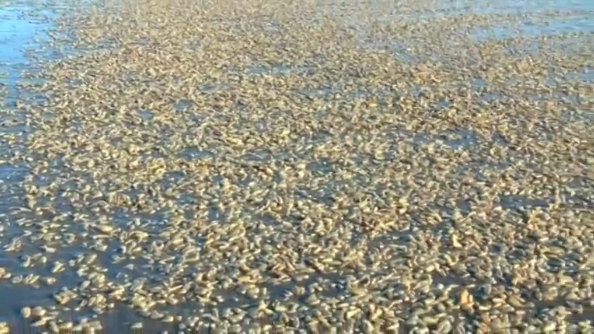
ISLA DE CHILOE, Chile (Reuters) — Thousands of molluscs, such as clams and mussels, were found stranded on the island of Chiloe, located in southern Chile, after being infected by a toxic red tide.
In a statement on its website, the Chilean Navy said the molluscs were found in Playa Grande de Cucao, Huentemo and Chanquin, all islands belonging to the archipelago of Chiloe.
Smaller quantities of crabs were also spotted in an area covering five kilometres (3.1 miles), according to the statement.
The Port Authority of Chonchi went to inspect the coastal area after receiving a call from the president of the Indigenous Community of Chanquin, Alberto Nain, who reported the situation, the statement read.
After conducting an analysis, Chilean health authorities, concluded the molluscs are contaminated and have warned the population to avoid eating them.
Red tide occurs when naturally occurring algae bloom out of control, producing toxins deadly to fish and other marine life. The doorless chemicals can trigger respiratory distress in people, such as coughing and wheezing.
Last month, unusually high ocean temperatures, due in large part to the El Niño weather phenomenon, fuelled a toxic algae bloom – also known as red tide – which affected 37 of the nearly 415 salmon farms operating in southern Chile. Most of the farms are in ocean enclosures or in estuaries.
El Niño leads to hotter sea temperatures in the west Pacific Ocean, which means more rain falls on South America and less in Australia and South East Asia.







